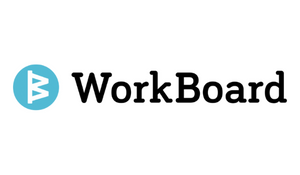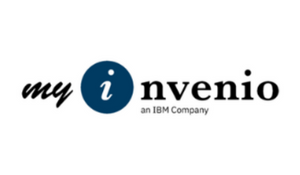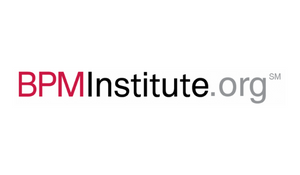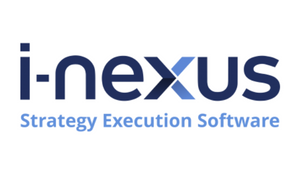










































Discover the strategies and insights shared by industry thought leaders that are shaping the future of business.
-1.png?width=600&height=350&name=COMPANY%20LOGO%20(53)-1.png)
In today's ever-changing landscape of the industry, business transformation is crucial for staying ahead. It involves making significant changes to various aspects of a business to adapt to new market conditions, customer demands, and technological advancements. Understanding the importance of business transformation is the first step toward success.
Business transformation allows companies to remain competitive and relevant in the market. It helps them identify and seize new opportunities, streamline operations, and improve efficiency. By embracing change and continuously evolving, businesses can stay ahead of the curve and overcome challenges.
Moreover, business transformation enables companies to future-proof their operations. It helps them anticipate and prepare for potential disruptions, such as changes in consumer behavior, emerging technologies, or economic shifts. By proactively adapting to these changes, businesses can mitigate risks and ensure long-term success.
To understand the importance of business transformation, industry thought leaders provide valuable insights and experiences. Their expertise and knowledge help businesses gain a holistic understanding of the benefits and challenges associated with transformation. By learning from these thought leaders, companies can make informed decisions and develop effective strategies for their own transformation journeys.
Successful business transformation requires careful planning and execution. Here are some key strategies that businesses can implement to ensure successful transformation:
1. Clearly Define Objectives and Goals: Before embarking on a transformation journey, businesses should clearly define their objectives and goals. This includes identifying the specific areas that need transformation and setting measurable targets to track progress.
2. Engage and Empower Employees: Transformation is not just about implementing new technologies or processes; it also involves a cultural shift. Engaging and empowering employees is essential for successful transformation. Businesses should communicate the reasons behind the transformation, involve employees in the decision-making process, and provide them with the necessary training and resources.
3. Foster a Culture of Innovation: Innovation is a key driver of business transformation. Companies should encourage and reward innovation at all levels of the organization. This can be done by creating a supportive and collaborative work environment, promoting knowledge sharing, and providing employees with the freedom to experiment and take calculated risks.
4. Embrace Agile Methodologies: Traditional waterfall project management approaches may not be suitable for fast-paced transformation initiatives. Agile methodologies, such as Scrum or Kanban, enable businesses to adapt and respond quickly to changing requirements. By breaking down transformation projects into smaller, manageable tasks and regularly reviewing progress, businesses can ensure flexibility and agility.
5. Continuously Monitor and Evaluate Progress: Transformation is an ongoing process, and businesses should continuously monitor and evaluate their progress. This includes regularly reviewing key performance indicators (KPIs), gathering feedback from stakeholders, and making necessary adjustments to the transformation strategy.
By implementing these key strategies, businesses can increase their chances of successful business transformation and stay ahead in the ever-changing landscape of the industry.
Technology plays a crucial role in driving business transformation. It acts as a catalyst for change and enables businesses to adapt, innovate, and stay competitive. Here are some ways businesses can leverage technology for successful transformation:
1. Adopt Digital Tools and Platforms: Digital tools and platforms, such as cloud computing, data analytics, and artificial intelligence, can enhance business operations, improve decision-making, and optimize resource utilization. By adopting these technologies, businesses can streamline processes, automate repetitive tasks, and gain valuable insights from data.
2. Embrace Automation and Robotics: Automation and robotics can significantly improve efficiency and productivity. By automating manual and repetitive tasks, businesses can free up employees' time to focus on more strategic and value-added activities. This not only enhances operational efficiency but also allows employees to develop new skills and contribute more to the business.
3. Implement Agile Development Practices: Agile development practices, such as DevOps or continuous integration/continuous delivery (CI/CD), enable businesses to develop and deploy software applications at a faster pace. This allows for quicker iterations, faster time to market, and the ability to respond to customer feedback rapidly. By embracing agile development practices, businesses can stay ahead in the rapidly evolving digital landscape.
4. Foster a Data-Driven Culture: Data is a valuable asset for businesses undergoing transformation. By fostering a data-driven culture, businesses can make informed decisions, identify trends, and uncover new opportunities. This involves collecting and analyzing relevant data, investing in data management and analytics tools, and training employees to become data literate.
By leveraging technology as a catalyst for transformation, businesses can unlock new growth opportunities, enhance customer experiences, and gain a competitive edge in the industry.
In the ever-changing landscape of the industry, businesses must embrace a culture of innovation and adaptability to stay ahead. Here's why it's important and how businesses can foster such a culture:
1. Encourages Continuous Improvement: A culture of innovation and adaptability encourages employees to constantly seek new ways of doing things and improve existing processes. It promotes a mindset of continuous learning and growth, where employees are empowered to challenge the status quo and come up with creative solutions to problems.
2. Enables Agile Decision-Making: In a rapidly changing environment, businesses need to make quick and informed decisions. A culture of innovation and adaptability enables agile decision-making by empowering employees to take ownership, experiment, and make data-driven decisions. It reduces bureaucracy and promotes a responsive and agile organization.
3. Attracts and Retains Top Talent: Innovative and adaptable companies are more likely to attract and retain top talent. Employees are drawn to organizations that encourage creativity, offer opportunities for growth and development, and provide an environment that fosters innovation. By embracing a culture of innovation and adaptability, businesses can build a talented and motivated workforce.
4. Facilitates Collaboration and Knowledge Sharing: Innovation thrives in collaborative environments where ideas can be shared freely and diverse perspectives are valued. By fostering a culture of collaboration and knowledge sharing, businesses can tap into the collective intelligence of their employees and drive innovation. This can be done through cross-functional teams, brainstorming sessions, and open communication channels.
By embracing a culture of innovation and adaptability, businesses can create a dynamic and resilient organization that is well-equipped to navigate the ever-changing landscape of the industry.
Industry thought leaders play a crucial role in shaping the future of business. Their insights and experiences provide valuable guidance to businesses looking to navigate the ever-changing landscape of the industry. Here's how industry thought leaders contribute to shaping the future of business:
1. Sharing Knowledge and Expertise: Industry thought leaders have deep knowledge and expertise in their respective fields. They share their insights through various channels, such as conferences, webinars, articles, and social media. By sharing their knowledge, they help businesses gain a better understanding of industry trends, best practices, and emerging technologies.
2. Inspiring Innovation and Change: Thought leaders inspire innovation and change by challenging conventional wisdom and pushing the boundaries of what is possible. Their visionary ideas and thought-provoking perspectives encourage businesses to think differently, experiment with new approaches, and embrace disruptive technologies.
3. Guiding Transformation Journeys: Business transformation can be a complex and challenging process. Industry thought leaders provide guidance and support to businesses embarking on transformation journeys. They share practical tips, success stories, and lessons learned from their own experiences, helping businesses avoid common pitfalls and make informed decisions.
4. Driving Collaboration and Networking: Thought leaders bring together industry professionals, experts, and practitioners through conferences, forums, and online communities. These platforms facilitate collaboration, networking, and knowledge exchange. By connecting with thought leaders and industry peers, businesses can stay updated on the latest trends, forge valuable partnerships, and access new opportunities.
By leveraging the expertise and insights of industry thought leaders, businesses can stay ahead in the ever-changing landscape of the industry and shape their own future.
.png?width=600&height=350&name=COMPANY%20LOGO%20(42).png) Case Studies: Successful Business Transformation Driven by Thought Leaders
Case Studies: Successful Business Transformation Driven by Thought Leaders
Real-world case studies serve as valuable examples of successful business transformation driven by thought leaders. By attending BTOES.com, you will have the opportunity to learn from these case studies and gain insights into the strategies, approaches, and outcomes of successful business transformation initiatives.
These case studies will showcase how thought leaders have navigated challenges, mobilized stakeholders, developed and executed business transformation plans, and achieved sustainable change. By understanding these real-world examples, organizations can gain inspiration, learn from best practices, and adapt successful strategies to their own business transformation journeys.
View our schedule of industry leading free to attend virtual conferences. Each a premier gathering of industry thought leaders and experts sharing key solutions to current challenges.
View Schedule of EventsWelcome to BTOES Insights, the content portal for Business Transformation & Operational Excellence opinions, reports & news.
-------------------------------------------------------
Search for anything
Insights from the most progressive thought leaders delivered to your inbox.
Insights from the world's foremost thought leaders delivered to your inbox.
Being a hero is all about creating value for others. Please invite up to 5 people in your network to attend this premier virtual conference, and they will receive an invitation to attend.
If it’s easier for you, please enter your email address below, and click the button, and we will send you the invitation email that you can forward to relevant people in your network.
View our schedule of industry leading free to attend virtual conferences. Each a premier gathering of industry thought leaders and experts sharing key solutions to current challenges.
View Schedule of EventsWatch On-Demand Recording - Access all sessions from progressive thought leaders free of charge from our industry leading virtual conferences.
Watch On-Demand Recordings For FreeDelivered by the industry's most progressive thought leaders from the world's top brands. Start learning today!
View All Courses NowThe premier Business Transformation & Operational Excellence Conference. Watch sessions on-demand for free. Use code: BFH1120
Watch On-DemandInsights from the most progressive thought leaders delivered to your inbox.
Insights from the world's foremost thought leaders delivered to your inbox.
Being a hero is all about creating value for others. Please invite up to 5 people in your network to also access our newsletter. They will receive an invitation and an option to subscribe.
If it’s easier for you, please enter your email address below, and click the button, and we will send you the invitation email that you can forward to relevant people in your network.
Courtesy of Nintex Pty's Paul Hsu, below is a transcript of his speaking session on 'Improve employee productivity during and post-COVID by ...
Read this article about HP, Best Achievement in Operational Excellence to deliver Digital Transformation, selected by the independent judging panel, ...
Read this article about BMO Financial Group, one of our finalists, in the category Best Achievement in Operational Excellence to deliver Digital ...
Read this article about Cisco, one of our finalists, in the category Best Achievement of Operational Excellence in Internet, Education, Media & ...









































































































































































































